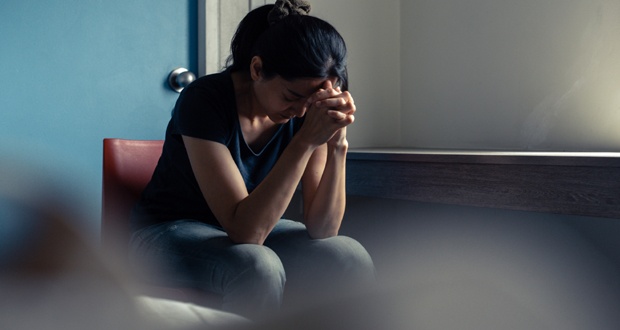Ending Mental Health Stigma
Mental Illness Awareness Week takes place from October 2nd-9th, 2022. The stigma from mental illness is very real and unfortunately very common. Mental health is a part of human life, however mental illness has been viewed as embarrassing, shameful, and seen as a weakness for individuals. Stigma is when someone views an individual in a negative way because they have distinguished characteristics or personal traits that’s thought to be, or actually is, a disadvantage. Mental health stigma can lead to discrimination towards the individual. People with a mental illness often do not seek treatment. This is because of the concern of being treated differently, from the stigma and discrimination against people with a mental illness. The stigmas associated with mental health may be unintentional. People may even unknowingly have a bias against somebody else or even themselves for having a mental health diagnosis. Having these negative beliefs towards an individual with a mental illness can cause them to feel ashamed for something that they do not have control over.
More people struggle with mental illness than we might realize. According to the Center for Disease Control and Prevention, 1 in 5 adults experience mental illness in the United States. Because of the prevalence of mental illness, it is important to be aware of the stigma towards it. Having awareness of why mental health stigma occurs can help to have a better understanding of how to end it. Some of the common misconceptions about mental illness come from; fear and ignorance, stories in the media, negative individual experiences, lack of knowledge, and societal norms. People may be afraid of mental illness because they do not have an understanding of the individual’s condition. Additionally, it may be challenging to talk about mental health conditions or talk to somebody in crisis if we do not have the understanding.
The sooner our communities can combat the bias and lack of understanding about mental health, the sooner we can end the stigma. Although there has been a rise in awareness about mental health, the stigma is still very apparent in the modern world. Stigmas carry with them a host of negative effects. For instance people may experience:
- Reduced hope
- Lower self-esteem
- Increased psychiatric symptoms
- Reduced likelihood of staying with treatment
- More difficulties at work, school activities, or even trouble finding housing
There are ways to fight against the stigma and lend support to those who are suffering, including yourself.
Educate yourself and others- Educate yourself about mental illness, symptoms and treatments. Having knowledge about mental illness is the first step that can help get the proper treatment that one may need. In addition, sharing your story or listening to somebody else’s story, is an opportunity to learn about mental illness. Educate others that may not understand, give them factual information that can replace the misconceptions that surround mental illness.
Be conscious of language- Words are extremely powerful and they matter. Think about the words you use and how they can be affecting the people who may be suffering from a mental illness. Using the word ‘crazy’ or the statement “the weather is so bipolar”, can have an impact of those around you. Not only should you be aware and respectful of using clinical terms, but how you use the words in a statement. Use person-centered language when discussing mental illness. Instead of saying “he’s schizophrenic” use the language “he’s a person with schizophrenia”. This helps to not identify the person to the mental illness. Using thoughtful language that is not derogatory and doesn’t label people with a mental illness can help reduce the stigma.
Normalize mental health treatment- The fear of being labeled with a mental illness can prevent somebody from getting treatment. It is important to know that treatment will only provide relief by identifying what is wrong and reducing the symptoms that may be interfering with everyday life. Mental illness is a disease and should not be treated any different from a physical disease. If we view mental health treatment just as important as physical treatment, people may be more likely to reach out to get professional help.
People with a mental illness can put the blame on themselves. If you are struggling with a mental illness, know that it is not your fault. If you know somebody who is struggling, let them know you are there for them. If we continue to educate ourselves and others, respectfully, about mental illness will help promote change. Remember the way we speak about mental illness matters and to continue the importance of mental health treatment. The stigma surrounding mental illness can come to an end with the support of those suffering from mental illness and speaking up against the stigma.
–Anabel Feauto
Valeo’s Crisis Center located at 400 SW Oakley Avenue. Valeo’s Crisis Center never closes, it is a walk-in emergency clinic with no appointment necessary. Valeo’s 24-Hour Crisis Line is 785-234-3300.
Valeo will be providing free mental health assessments at LULAC Senior Center 1502 NE Seward Avenue October 4th – October 7th from 10am-12pm.
READ: Time to Elevate the Conversation Surrounding Suicide
Valeo Behavioral Health Care
785-233-1730
Crisis Services
400 SW Oakley
Topeka, KS 66606
24 Hour Crisis Line
785-234-3300
National Suicide Prevention Life Line
1-800-273-8255
Shawnee County Suicide Prevention Coalition
SCSPC.org
Family Service and Guidance Center (18 and under)
325 SW Frazier
Topeka, KS 66606
24 Hour Crisis Number
785-232-5005
Healing after Loss to Suicide Group (HeALS)
Sandy Reams – Group Facilitator
Topeka.Heals@gmail.com
785-249-3792







